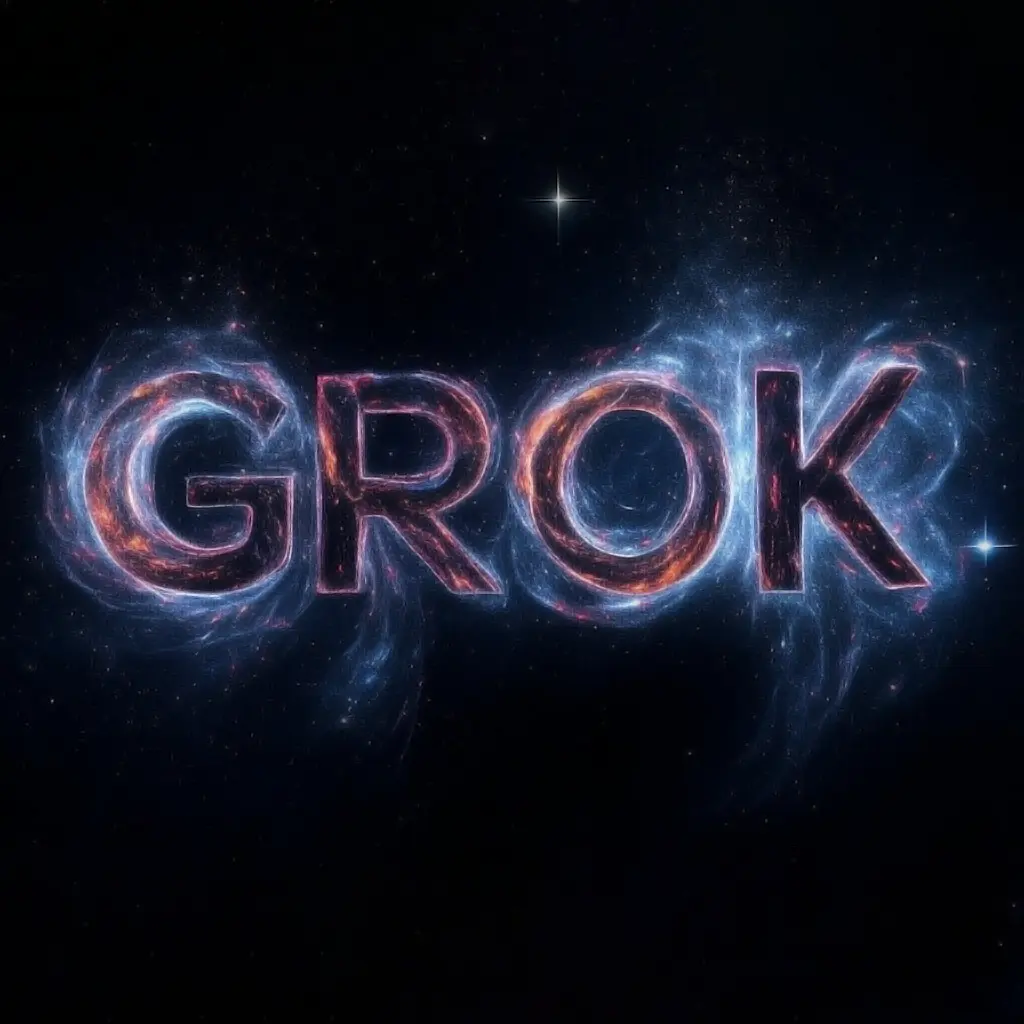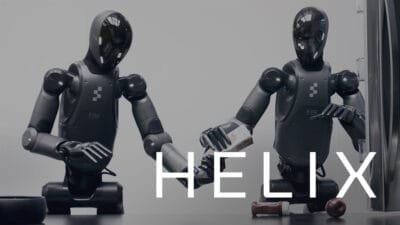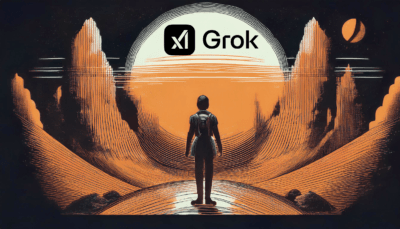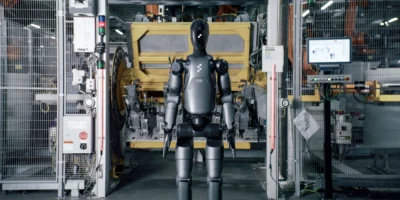What is Grok 3?
Released by xAI on February 17, 2025, Grok 3 is being hailed as one of the smartest AI models yet. Designed to push the boundaries of artificial intelligence, it offers powerful features that set it apart:
- Advanced Reasoning: Grok 3 can tackle complex problems and think creatively, potentially outshining competitors like ChatGPT and Google’s Gemini.
- Huge Context Window: With a 1 million token capacity, it can process massive documents or datasets without losing accuracy.
- Visual Data Mastery: It excels at analyzing images and videos, opening doors to diverse applications.
- Fewer Mistakes: Built with self-correction capabilities, Grok 3 delivers more reliable results.
Elon Musk has described it as a “beta” version, hinting at even bigger updates to come. From text-to-video conversion to advanced problem-solving, Grok 3 is poised to revolutionize AI (Learn more about Grok 3).
What is Tesla Optimus Gen 2?
Unveiled in December 2023, Tesla Optimus Gen 2 is a humanoid robot built for real-world tasks. It’s a major upgrade from its predecessor, with features that make it faster, smarter, and more versatile:
- Better Mobility: Now 10 kg lighter and 30% faster, it moves more efficiently than Gen 1.
- Precise Hands: With 11 degrees of freedom and tactile sensing, it can handle delicate items like eggs with ease.
- Top-Notch Sensors: Advanced actuators and sensors improve its balance and interaction with the world.
- Production Timeline: Tesla plans limited production in 2025 for internal use, with broader rollout by 2026.
Musk envisions producing 10,000 units in 2025, aiming to keep costs below $20,000 per robot, making it a game-changer for industries like manufacturing (Tesla Optimus Updates).
How Grok 3 and Optimus Gen 2 Could Work Together
What happens when you pair Grok 3’s brainpower with Optimus Gen 2’s physical skills? You get a robot that’s not just strong but also smart. Here’s how their integration could transform robotics:
- Smarter Tasks: Grok 3’s reasoning could let Optimus handle complex jobs, like assembling machinery or fixing equipment on the fly.
- Independent Action: With Grok 3’s vast context window, Optimus could adapt to new situations without constant human oversight.
- Human-Like Communication: Grok 3’s language skills could make Optimus a natural conversationalist for roles in healthcare or customer service.
- Learning Over Time: Reinforcement learning means Optimus could get better with every task it performs.
- Tackling Big Problems: Together, they could solve challenges needing both brains and brawn, like disaster recovery.
Musk has teased that data from Optimus could even train Grok 3, creating a powerful feedback loop for AI development (Musk on AI and Robotics).
Real-World Uses for This Tech Duo
The combination of Grok 3 and Optimus Gen 2 could impact industries and daily life in big ways. Here are some possibilities:
- Manufacturing: Think precision assembly, quality checks, and even design tweaks—all faster and more accurate.
- Healthcare: Robots could assist with surgeries, patient care, or diagnostics, supporting doctors and nurses.
- Home Help: From chores to companionship, they could make households smarter and safer.
- Exploration: Perfect for missions in space, deep oceans, or disaster zones, collecting data where humans can’t go.
Challenges to Overcome
This dream team isn’t without hurdles. Here’s what needs attention:
- Safety First: Robots must be safe around people, and AI ethics questions need clear answers.
- Tech Hurdles: Merging AI and robotics means solving issues like processing speed and latency.
- Affordability: While Musk aims for low costs, scaling production won’t be cheap or easy (Optimus Cost Goals).
Side-by-Side Comparison: With Grok 3 vs. Without Grok 3
| Feature | Optimus Without Grok 3 | Optimus With Grok 3 |
|---|---|---|
| Decision-Making | Follows pre-programmed instructions | Analyzes situations and makes real-time decisions |
| Learning | No learning; static capabilities | Learns from experience and improves over time |
| Task Complexity | Best for repetitive, predictable tasks | Handles complex, variable tasks requiring cognition |
| Human Interaction | Responds to basic commands | Engages in natural conversations and understands context |
| Adaptability | Struggles with changes or new environments | Adapts quickly to new situations and challenges |
| Problem-Solving | Cannot solve problems; waits for human help | Identifies issues and finds solutions independently |
| Autonomy | Requires frequent oversight | Operates independently in dynamic settings |
Real-World Applications: A Game-Changer
The integration of Grok 3 unlocks new possibilities for Optimus Gen 2 across industries:
- Manufacturing:
- Without Grok 3: Optimus is a reliable worker for repetitive tasks, like assembly line work.
- With Grok 3: It becomes a factory optimizer, capable of improving processes, solving problems, and adapting to changes on the fly.
- Manufacturing:
- Healthcare:
- Without Grok 3: Optimus could assist with basic tasks like moving patients or carrying supplies.
- With Grok 3: It could help with diagnostics, monitor patient data, and even suggest treatments, making it a valuable assistant in hospitals.
- Healthcare:
- Home Assistance:
- Without Grok 3: Optimus might handle simple chores like vacuuming or fetching items.
- With Grok 3: It could manage a smart home, provide companionship, and adapt to a family’s routines, offering personalized assistance.
- Home Assistance:
- Exploration:
- Without Grok 3: Optimus could gather basic data in hazardous areas, like disaster zones or space missions.
- With Grok 3: It could analyze findings, make decisions, and conduct experiments autonomously, expanding its usefulness in research.
- Exploration:
Challenges to Consider
While the combination of Grok 3 and Optimus Gen 2 is promising, there are hurdles to overcome:
- Safety:
- Ensuring the robot operates safely, especially in human environments, is critical.
- AI-driven decisions must be reliable and ethical to prevent accidents or harm.
- Safety:
- Technical Complexity:
- Merging advanced AI with robotics requires overcoming issues like real-time processing and minimizing latency.
- This integration demands sophisticated hardware and software to ensure seamless operation.
- Technical Complexity:
- Cost:
- Scaling this technology for widespread use will be expensive, though Tesla aims to make Optimus affordable at scale.
- Cost:
The Bottom Line
Tesla Optimus Gen 2 without Grok 3 is a powerful robot for specific, repetitive tasks—but it’s limited by its lack of intelligence and adaptability. Adding Grok 3 transforms it into an adaptive, thinking machine capable of tackling complex challenges, learning over time, and operating autonomously. This integration could redefine industries, from manufacturing to healthcare, and even bring intelligent robots into our homes. While challenges like safety and cost remain, the potential is undeniable: the combination of Optimus Gen 2 and Grok 3 could mark the next big leap in robotics and AI.
Which robot would you bet on? Share your thoughts in the comments! 🤖💬




